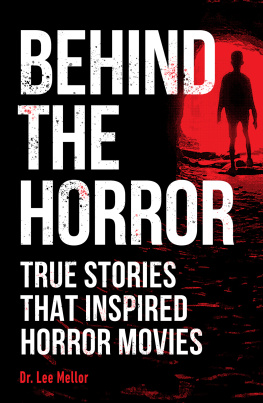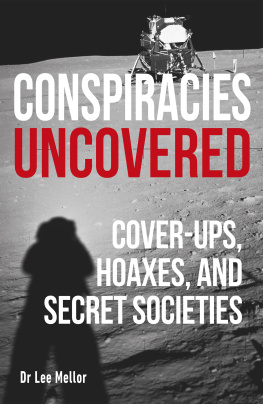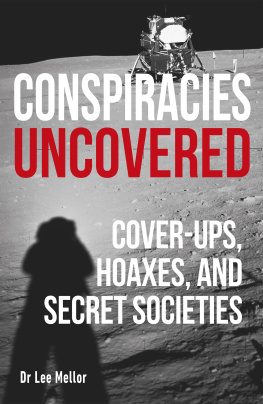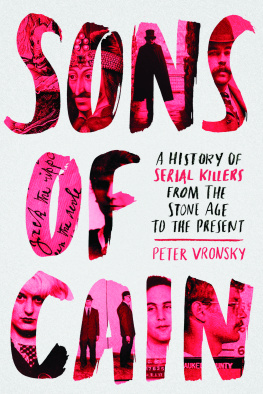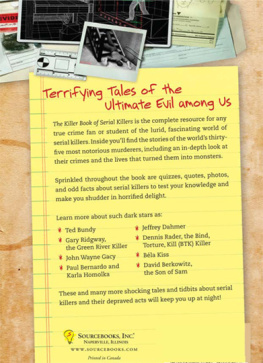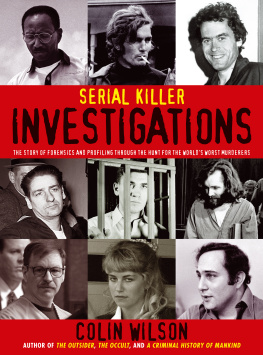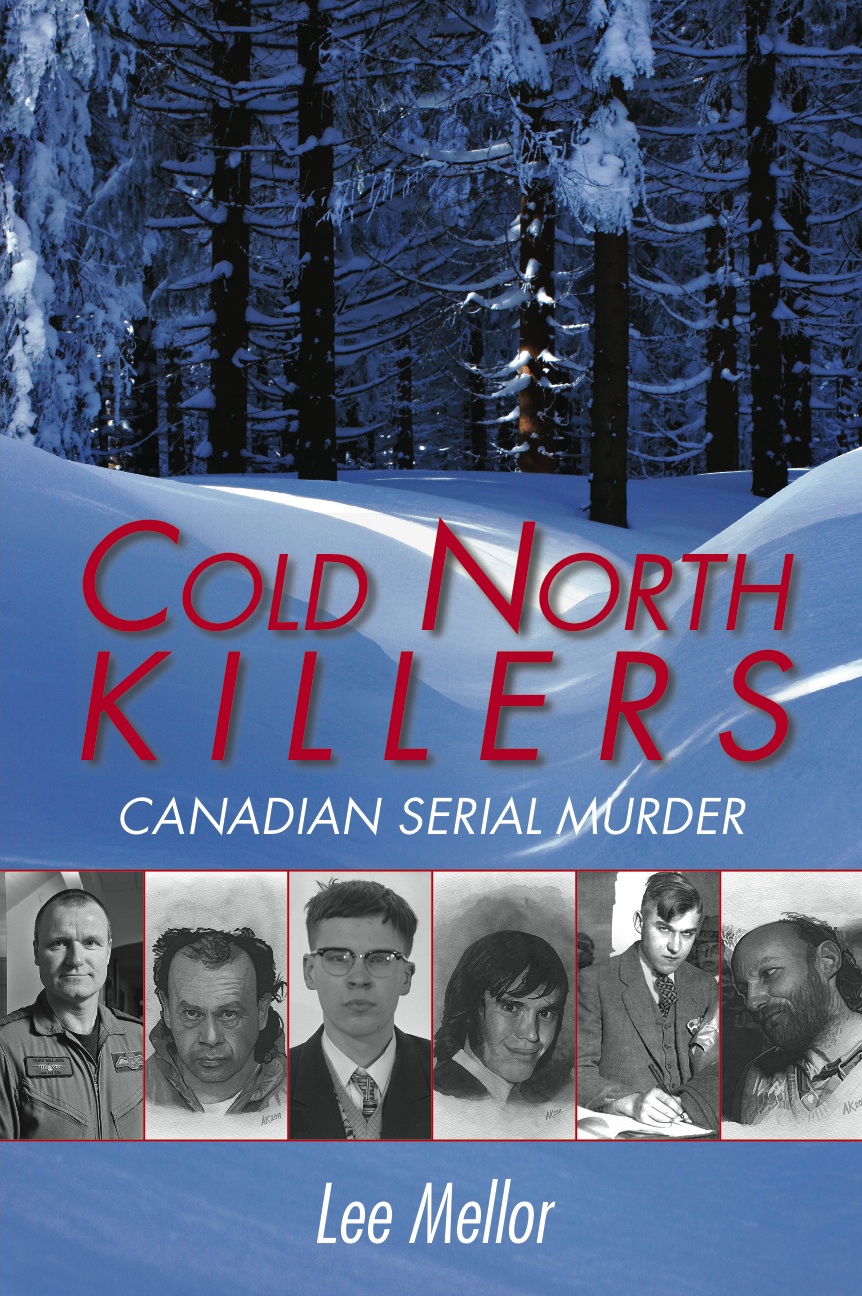Right Under Our Noses:
Colonel Russell Williams and the Writing of this Book, Part 2
In the shock following the arrest of Russell Williams for the murders of Marie-France Comeau and Jessica Lloyd, the Canadian media began delving into the enigmatic colonels past. A look at his early years revealed little out of the ordinary. David Russell Williams was born on March 7, 1963, in the English Midlands town of Bromsgrove, just southwest of Birmingham. Soon after, his mother Christine gave birth to a second son, Harvey, and the family uprooted to Deep River, Ontario. There his father David, a metallurgist, found work at Canadas most reputable nuclear research lab in nearby Chalk River. Located two hundred kilometres northwest of Ottawa, from its inception, Deep River was a highly planned and structured community brimming with middle-class professionals whose activities ranged from tennis and yachting to wife-swapping. It was through these nouveau sexual experimentations that David and Christines relationship eventually crumbled, the latter filing for divorce in October 1969, citing her husbands adulterous relationship with Marilynn, wife of his best friend Jerry Sovka. An esteemed nuclear scientist, Jerry would in turn divorce Marilynn on the same grounds.
Following the Williamses split, Russell and Harvey relocated to Petawawa with their mother. In a bizarre twist, within four months of the divorce, Christine remarried none other than Jerry Sovka, whose surname the brothers would adopt. Jerry landed a lucrative job at Ontario Hydro, moving his family southwest to the Toronto suburb of Scarborough. Seven-year-old Russell was enrolled in a Montessori school, and during the next few years, the Sovkas moved house several times before settling into a large bungalow on the Scarborough Bluffs, overlooking Lake Ontario. At age fifteen, Russell began attending Birchmount Park Collegiate Institute. He studied piano and became a paperboy for the Globe and Mail early signs of the determined work ethic that would later earn him such glowing commendations in the military. Yet all was not right in his world. Remembered as a quiet, well-mannered child, during his teens Russells introversion mutated into an aloof smugness, leading many of his classmates to form the opinion that he felt superior to them.
In 1979, Jerry Sovka accepted a position overseeing a nuclear reactor project in South Korea, and the adolescent Russell spent the next three years pinballing between his family in Asia and the familiar isolation of Scarborough. From 1980 to 1982, Russell remained in Toronto, boarding at the prestigious Upper Canada College, where he completed his high school education, rubbing shoulders with many of Canadas future political leaders. As a prefect, he reported to Andrew Saxton later a Conservative MP for North Vancouver. Though by no means unpopular, he continued to be anti-social, with the exception of school activities, focusing his energies on academics and mastery of the trumpet. When he graduated in 1982, his yearbook quote read: If you have to ask what Jazz is, youll never know.
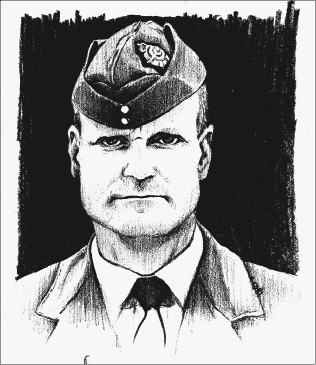
Colonel Russell Williams an artists rendtition.
Elizabeth Roth.
Choosing to study economics and politics at the University of Torontos Scarborough campus, Russ Sovka began referring to himself as Russell Williams again, and seemed to crawl out of his self-imposed shell. He became affectionately known to housemates as the drill sergeant for his rigid assigning of chores. Williams also developed a practical joke, later to take on much darker connotations, of hiding for hours in a fellow residents closet, only to burst out suddenly and frighten them. The game caught on, and soon every tenant in the little brown brick townhouse was joining in enthusiastically. Nearing the end of his freshman year, Williams began his first serious relationship with a Japanese exchange student named Misa, becoming infatuated with her. Though they would remain together for two years, nobody could recall witnessing an act of physical affection pass between them. When Misa eventually told Williams she no longer wished to see him, he was devastated, breaking down in tears in front of his friends. In a last-ditch attempt to salvage the relationship, he sent her roses, which she returned with an angry clarification that they were through.
Some have speculated that this rejection may have been the spark that lit Williamss fuse. During his time at U of T Scarborough there were a number of unsolved sexual assaults on campus. On one occasion, a woman was seized in the parking lot, dragged into a nearby valley, and raped. When police realized that Paul Bernardo was also studying economics on campus at the same time, rumours began circulating in the press that he and Williams were once friends. Little has come of these allegations since they surfaced in February 2010.
With his romance shattered, Williams began looking for something to fill the psychological void. He found it in the 1986 blockbuster Top Gun. Inspired by the film, he began training to fly planes at Torontos Buttonville Airport. Aviation became his new true love, and upon graduating from U of T in 1987, he decided to forego politics and economics in favour of a career in the Royal Canadian Air Force. Earning his wings within three years, Williams would soar through the ranks of the military at lightning speed.
While training novices in Portage la Prairie, Manitoba, on June 1, 1991, he married Mary Elizabeth Harriman, who later became an associate executive director for the Canadian Heart and Stroke Foundation. By July 2009, Williams was a colonel presiding over CFB Trenton: the largest air force base in Canada. With a new home in the Ottawa suburb of Orleans, and a cottage just north of the base in Tweed, everything seemed to be going right. Yet, by January 2010, Colonel Russell Williams was being held at Quinte Detention Centre facing two charges of murder, sexual assault, forcible confinement, and break-and-enter. On April 3, he unsuccessfully attempted suicide by jamming a cardboard toilet paper roll down his throat. What had gone wrong?
Having already researched Chapter 2: Nature, Nurture, or Neither, I decided to scan Williamss childhood for the thirteen developmental problems contributing to the psychopathology of a serial killer. The first four: drug and alcohol abuse, psychiatric history, and criminal history, I wrote off immediately. Williams was as strait-laced as they come, no doubt contributing to his unparalleled rise through the military. There had been no reports of physical abuse or head trauma in his history, and rather than finding a demon seed in his genes, his family are, if anything, notably successful, law-abiding citizens. It is worth mentioning that Russell reportedly became estranged from his mother and brother Harvey following Christines 2001 divorce from Jerry Sovka. This seems to imply a reverence for his stepfather, eliminating the negative male caretaker argument.
There were four developmental factors on the list which I wasnt as ready to rule out. The first was sexual problems. Until his first year of college, there is no mention of Williams ever having had a serious girlfriend. At first I dismissed this as the same frustrated inability to meet women that many introverted intellectual males experience in their teens. Later, while watching an interview with the colonels best friend, Jeff Farquhar, on CBCs The Fifth Estate , I learned that when Williamss relationship with Misa ended, not only was the subject off-limits to his closest friends, but, alarmingly, he did not date again for another ten years! Second, in light of Williamss implication in nearly a hundred fetish burglaries, along with the knowledge that he had forced his two sexual assault victims in Tweed to model lingerie, I began to suspect that Williams might be a transvestite. Sexual problems thus became the first item on the list of his developmental problems where I found myself placing a firm check mark. In time it would transpire that Williams had admitted to police that he had not had sex with his wife for years. It also occurred to me that as a young man he had spent a great deal of time alone. With his parents either dragging him around the world or abandoning him to colleges and boarding schools, it seemed likely that he was unable to establish meaningful emotional connections with friends or relatives. In a way, this was a form of passive unintentional psychological abuse, and though his familys wealth gave Williams opportunities for education and social advancement unavailable to most Canadians, to say that he had been treated unfairly would not be inaccurate. I therefore opted to give Williams half a point each in the categories of psychological abuse and treated unfairly. Finally, my uncertainty regarding Williamss childhood relationship with his mother was answered in 2011 with the publication of Timothy Applebys A New Kind of Monster . According to interviews conducted with her neighbours, Christine Williams/Sovka displayed signs of being emotionally distant, prudish, cold, and controlling. With this in mind, it is possible that Russell may have developed an early sense of rejection and resentment toward the female sex. This negative relationship with the birth mother combined with Williamss sexual problems and the two half-points I attributed to him in psychological abuse and treated unfairly reveals that he stood a 23 percent chance of becoming a serial murderer. Moving beyond developmental factors, I realized that if I were to understand Williamss unique psychology, I would have to study his crimes in detail. Fortuitously, he was entering a plea of guilty on all counts, and the first day of his trial was fast approaching.


